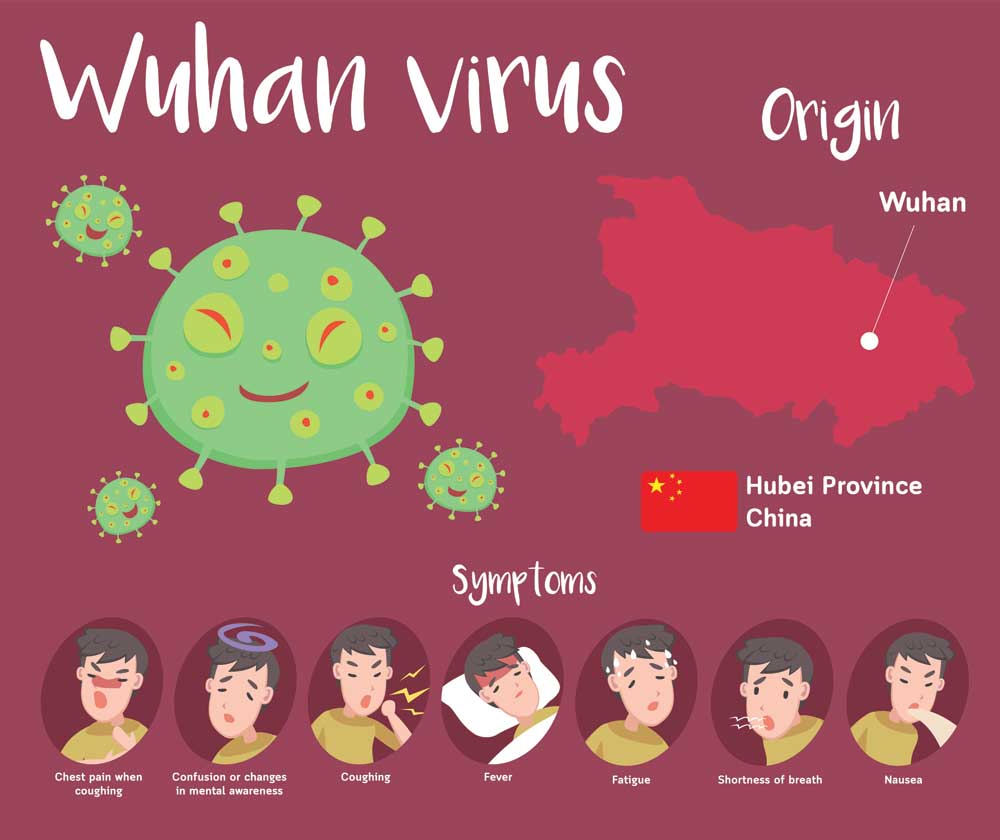For seniors, prevention is the key to steering clear of the novel C
The pandemic novel coronavirus nCoV is an infection that can cause pneumonia-like symptoms by spreading to the lower respiratory tract.
Senior citizens, particularly those with heart conditions and weakened immune systems, need to be extra careful. News of strange, unheard-of viruses surfacing is not new over the last few decades. We’ve had our share of scares in India too with SARS, Nipah, Ebola and the like.
The outbreak of nCoV originated in China at the end of December 2019, apparently in the wholesale market in Wuhan, Hubei province. More than 1000 people have died in China since the outbreak, which has been declared a public health emergency by the World Health Organisation. There is news of other nationals being infected by this virus, numbers are yet to be confirmed. In India, so far there are three confirmed cases in Kerala and 172 cases under observation in Karnataka.
What is the novel coronavirus?
A coronavirus is a common virus that causes infection in sinuses, nose or upper throat. Most coronaviruses are not as dangerous as they mostly affect animals and do not spread to human beings. However, there are seven strains of this virus – Novel Coronavirus (2019-nCoV) being the seventh, which can affect humans.
The Novel Coronavirus (2019-nCoV) is the cousin of the more popular Severe Acute Respiratory Syndrome (SARS) virus (outbreak in Southern China, 2002) and the Middle East Respiratory Syndrome (MERS) virus (outbreak in Saudi Arabia, 2012). An analysis found that the genetic sequence of 2019-nCoV is 96% identical to SARS and MERS that originated in bats. Hence like other coronaviruses (SARS & MERS) — Novel coronavirus can only jump between people who come in close contact with each other, and is highly contagious.

Symptoms of coronavirus
Symptoms of coronavirus are similar to catching a cold. These symptoms can further develop into congestion, projecting pneumonialike symptoms. It is essential to be on the lookout especially during scares like this.
- Runny nose
- Coughing
- Sore throat
- Fever
Preventive measures
- Keep your hands clean. Wash them regularly with soap and warm water or you may keep a hand sanitizer handy.
- Food safety is a must. Keep separate knives and chopping boards for raw meat and vegetables. Wash vegetables thoroughly before using them.
- Keep your hands and fingers away from your eyes, nose, and mouth.
- Refrain being around people with a respiratory infection.
- Take ample rest.
- Drink plenty of fluids.
- To help ease a sore and scratchy throat, use a humidifier or have a steamy shower.
Steer clear from social media hoaxes
Misinformation spreads faster when people are afraid. A contagious and potentially fatal disease is frightening and provides the ideal emotionally charged context for rumors to thrive. Social media is flooded with false information and rumors about the coronavirus. Examples include – HIV drugs can be used as the cure for the virus, coronavirus can kill a person in seconds, photographs of people lying dead on the streets of Wuhan. All facts related to the Novel Coronavirus are updated on the Ministry of Health and the World Health Organisation portals. These portals will provide you with accurate facts and stats on the disease.








